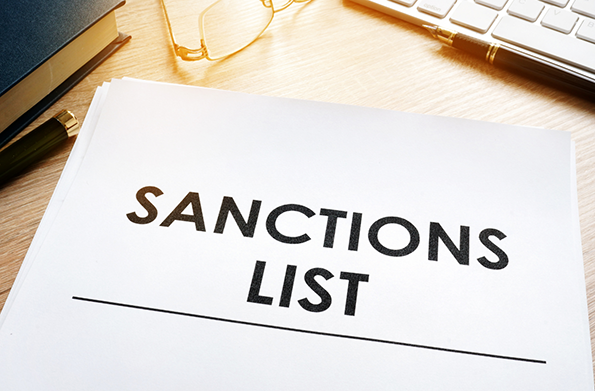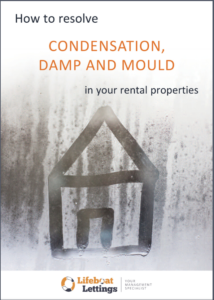
The UK government is tightening regulations to close loopholes that could allow sanctioned individuals to enter the rental market undetected. With financial crime, corruption, and illicit activities often linked to property transactions, this change aims to strengthen oversight and ensure that letting agents and landlords play an active role in preventing potential breaches. From May 14, 2025, all letting agents & self-managed landlords will be legally required to conduct sanctions checks on every landlord at the point of instruction and every tenant before finalising a letting agreement. Failure to comply could lead to severe penalties, including hefty fines and criminal prosecution.
This shift marks a significant change for the lettings industry. Until now, sanctions checks were only required for rental agreements exceeding €10,000 per month (approximately £8,300). However, with the threshold removed, every letting agent must now integrate sanctions screening into their processes—making compliance more important than ever.
What is a Sanctions Check?
A sanctions check screens individuals, companies, and even countries against government-imposed sanctions lists. These lists identify people and organisations restricted from financial transactions due to involvement in activities such as:
- Money laundering and financial crime
- Drug trafficking
- Terrorism
- Human rights violations
Sanctions can include:
- Freezing financial assets
- Banning real estate transactions
- Imposing restrictions on financial services and investments
- Travel bans and visa restrictions
Letting agents and self-managed landlords will now have to check whether landlords or tenants appear on the UK sanctions list. If a match is found, it must be reported to the Office of Financial Sanctions Implementation (OFSI), and the rental process must not proceed.
Why are These Changes Being Introduced?
Criminals often attempt to use property transactions to obscure illicit financial activity. By expanding sanctions checks to cover all rental agreements, the government aims to prevent sanctioned individuals from using UK rental properties as a means to bypass financial restrictions.
For letting agents and self-managed landlords, this means additional due diligence, but it also helps protect businesses from unwittingly facilitating financial crime. Compliance is not just a legal necessity—it’s essential for maintaining industry integrity and avoiding severe financial and reputational risks.
What Does This Mean for Letting Agents & Self Managing Landlords?
Increased Legal Responsibility
Under the new regulations, letting agents must report to OFSI if:
- A landlord or tenant appears on the UK sanctions list
- There is reasonable suspicion of a sanctions breach
- Any assets associated with a sanctioned individual are identified
Negligence will not be accepted as an excuse, and failing to act could result in serious consequences.
Severe Financial Penalties
Non-compliance carries substantial financial risks. The government has stated that fines will be “the greater of £1 million or 50% of the value of the breach.”
Recent enforcement actions show that authorities are taking financial crime seriously. In 2024 alone, HMRC issued over £1.6 million in fines to estate agents for failing to meet anti-money laundering (AML) obligations. Letting agents should expect similar scrutiny when the new sanctions rules come into effect.
Administrative Challenges
With already growing compliance demands from the Renters’ Rights Bill and evolving Energy Performance Certificate (EPC) regulations, this new requirement adds another layer of complexity. Manually conducting sanctions checks is time-consuming, prone to errors, and could leave agents struggling to keep up.
How to Conduct a Sanctions Check
The process for conducting a sanctions check includes:
- Accessing the UK Sanctions List – This publicly available list includes individuals and entities subject to financial restrictions.
- Manually Searching Tenant or Landlord Names – Agents must check names against the list.
- Verifying Matches – If a potential match is found, further investigation is needed. However, common names and lack of unique identifiers (like date of birth or address) make this process difficult.
- Reporting to OFSI – Any matches must be reported, even if uncertainty remains.
- Keeping Records – Agents must document checks and outcomes for compliance audits.
This manual process presents several challenges, including the risk of missing matches or misidentifying individuals. Automating these checks with screening software can help ensure accuracy, save time, and keep agents compliant.
Conclusion – Staying Ahead of Compliance Changes
With this new legal requirement taking effect in May 2025, letting agents and self-managed landlords must be fully prepared. This is just one of many regulatory changes reshaping the lettings industry, alongside the Renters’ Rights Bill and evolving property standards. The key takeaway? Compliance is no longer optional, and keeping up with these changes is essential to avoid penalties and safeguard your business.
At Lifeboat Lettings, we stay ahead of legislative shifts to ensure landlords remain compliant and informed. If you need guidance on how these changes affect your properties or rental processes, get in touch today.
👉 Contact us to learn how we can help you navigate these new compliance requirements.




